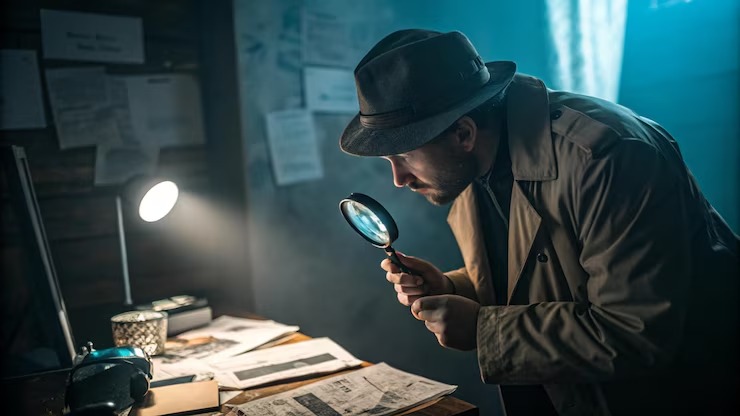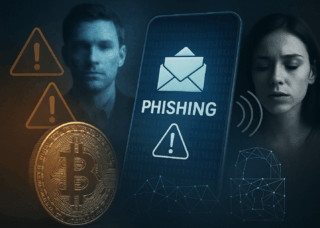Hiring a private detective can be a daunting decision, especially when the stakes are high-whether it’s finding a missing person, uncovering corporate fraud, or resolving personal matters like infidelity. The success of your investigation largely depends on choosing the right professional for the job.
In this essential guide by Privin Network, we will be covering details about how to hire a PI, what they can help with, and what to expect from their services. Private investigators are skilled professionals who gather information, conduct surveillance, and provide evidence that can be admissible in court.
Let’s take a look at how to hire a Private detective to help you with your case.

How to Hire a Private Investigator?
Step 1: Determine Your Needs
Before hiring a PI, it is essential to understand your specific needs. Are you dealing with a personal matter or a professional issue?
When determining your needs, it’s important to consider the specific issues you’re facing.
For personal matters, this could include:
- Infidelity or cheating investigation.
- Help during divorce cases by gathering evidence and ensuring fair assessments in alimony modification cases.
- Child custody cases by providing evidence that can influence court decisions.
- Missing persons case who have disappeared due to personal, legal, or criminal reasons.
On the professional front, private investigators can help with:
- Uncovering theft or other malpractices within a business environment, ensuring that your company’s assets and integrity are protected.
- Combating cybercrime, particularly in industries that are most vulnerable to such threats, by identifying and mitigating potential risks.
- Uncovering insurance fraud by providing examples and evidence of fraudulent activities, helping you to make informed decisions and protect your financial interests.
- Identifying signs that your business partner or employees are engaging in fraudulent activities, ensuring you can take appropriate action to protect your business interests and maintain a trustworthy work environment.
All in all, identifying your needs will help you find an investigator with the appropriate expertise. For more examples of the types of cases private investigators handle, read our guide.
Step 2: Researching Potential Investigators
When searching for a private investigator, it’s crucial to conduct thorough research to ensure you find a reliable and competent professional. Here are some steps to help you research potential investigators:
- Seek referrals from trusted sources or legal professionals.
- Consult online directories and professional investigation organizations to find accredited PIs.
- Verify licensing to ensure they are authorized to operate and held to legal standards.
- Evaluate qualifications by asking about experience and specializations. Ensure the PI has handled cases similar to yours.
Once you have a list of potential investigators, it’s important to evaluate their qualifications and services.
Step 3: Choosing the Investigator
In case of a local investigation, you can arrange a meeting where the investigator can provide valuable insights.
Here are some points to consider during your meeting:
- Meet the investigator in person to assess their professionalism and manner. This can help you gauge their reliability and trustworthiness. Pay attention to their demeanor and how they handle your questions, as this can be indicative of how they will handle your case.
- Verify their PI license and insurance to ensure they are reliable and professional. This confirms they are legally authorized and financially responsible. Insurance can also protect you from potential liabilities during the investigation.
- Ask about their qualifications, years of experience, and how many cases similar to yours they have handled. This ensures they have the necessary expertise and experience. Consider asking about their continuing education efforts, which can demonstrate their commitment to staying updated with the latest investigative techniques.
- Ensure effective communication and that the investigator is responsive to your inquiries and concerns. Good communication is key to a successful investigation. Consider setting up regular updates or briefings to stay informed about the progress of your case. To understand what to expect during the investigation process, you can read our detailed guide.
- Confirm that the investigator maintains strict confidentiality and adheres to client confidentiality laws. This is crucial for sensitive matters that require discretion.
Step 4: Hiring and Contracting
Once you have evaluated potential investigators and decided on the best fit for your needs, it’s crucial to formalize the hiring process with a written agreement. This agreement should include:
- Scope of Work: Clearly define what services the investigator will provide and what is expected from both parties.
- Payment Terms: Outline the payment schedule, including any upfront fees, hourly rates, and expenses.
- Confidentiality: Include a clause that ensures the investigator maintains confidentiality and adheres to client confidentiality laws.
- Termination: Specify the conditions under which the contract can be terminated by either party.
A written agreement is essential to avoid misunderstandings and ensure both parties are on the same page. It provides a clear understanding of the terms and conditions, protecting both you and the investigator.
Avoid verbal agreements as they can lead to disputes and misunderstandings. A written contract ensures that all terms are clearly documented and legally binding. If necessary, negotiate terms to ensure they align with your expectations and needs.
These insights can help you make informed decisions and ensure that your investigation is conducted professionally and effectively.
Frequently Asked Questions
What can a private investigator do?
Private investigators can gather information, conduct surveillance, perform background checks, and assist in legal matters such as fraud detection and divorce cases. Read about the details of what a private investigator is here.
How do I find a reliable private investigator?
Use referrals, online directories, and ensure they are licensed and insured. Also, check their experience, references, and professional affiliations.
Can a private investigator help in legal cases?
Yes, private investigators can assist in legal cases by gathering evidence, conducting background checks, and providing information that can be admissible in court.
How long does a private investigation take?
Investigations can take weeks, months, or even years to complete, depending on the complexity of the case. Be patient and maintain open communication with your investigator.
Who is better for my case: A detective or a Private investigator?
The choice between a private investigator and a detective depends on the nature of your case. If you need help with a private matter such as infidelity investigations, background checks, or locating missing persons, a private investigator might be the better choice. For criminal matters, a detective from a law enforcement agency would be more appropriate. Learn the difference between both here.
Can a private investigator work with the police on a case?
Yes, private investigators can work with the police on a case, but they do so in an unofficial capacity. They might provide information and evidence they have gathered during their investigation, which can then be used by law enforcement in their official investigations.
Are private investigators bound by confidentiality?
Yes, private investigators are typically bound by confidentiality agreements with their clients. They are required to keep the details of their investigations private and only disclose information to their clients unless otherwise required by law.
Conclusion
Hiring a PI requires careful consideration and research and we hope we were able to answer your questions regarding how to hire a private investigator. By following these steps, you can ensure that you hire a professional who is reliable, trustworthy, and capable of handling your specific needs.
Remember to prioritize communication, confidentiality, and adherence to legal and ethical standards to ensure a successful investigation. If you have any questions or need assistance with an investigation, contact us for a free consultation to discuss your specific needs and learn how we can assist you in achieving your investigative goals.






